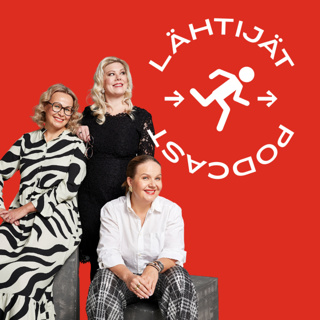
Your Hunger For Money Is Starving You
William MacAskill is a fascinating guy. He is the youngest Associate Professor in Philosophy at the University of Oxford. He’s one of the founders of the Effective Altruism movement. He’s written a great book called Doing Good Better - Effective Altruism and a Radical New Way to Make a Difference and given a popular TED talk. Will also happens to donate every dollar he earns over $30,000 each year to charities of careful choosing. That was a commitment Will made to himself in 2009. He estimates that will be a lifetime sum well into the millions of dollars.In our interview with him for DailyStoic.com, we asked Will whether there are philosophical benefits to living so cheaply, in addition to the fact that it means he can use those savings to help other people. After all, the Stoics talk a great deal about being indifferent to wealth and the finer things in life for entirely selfish reasons--as in it makes your life better. Will’s response is great. I’m sympathetic to that Stoic idea. "Mo money mo problems" has some truth to it: the more things you possess, the more things there are to worry about, or feel sad about if they're damaged or lost. And they take attention away from the things that really are important to making your life go well — your relationships with friends, family, and romantic partners, finding work that you can excel in, staying fit and healthy. This isn't just my anecdotal experience either: there's a ton of evidence from the psychological literature that, above around $30,000 per year, additional income doesn't do much to increase happiness.Will certainly would agree with what Marcus Aurelius wrote, “The only wealth which you will keep forever is the wealth you have given away.” It’s not about getting more. It’s about getting enough and then helping others get there too. That’s our job, that’s the job of being a human being. Check out our full interview with Will, check out his book Doing Good Better - Effective Altruism and a Radical New Way to Make a Difference, and watch his TED talk. And see what changes you might be able to make in your life to help other people. See Privacy Policy at https://art19.com/privacy and California Privacy Notice at https://art19.com/privacy#do-not-sell-my-info.
7 Marras 20182min

Each Of Us Has A Duty
In one sense, it’s hard to argue with the statistics that any individual’s vote makes a difference. One person out of so many? When more than 50% of the population doesn’t even bother? In a country of gerrymandering and voter suppression? In the other, it’s stunning to think that the 2016 US Presidential Election, which saw some 135 million votes, was decided by roughly 77,000 ballots across three states. Michigan was swung by just 10,000 voters. But to this argument, the Stoic would scoff. Whether your vote counts or not is not the reason that one should engage in the democratic process. First off, the Stoics are explicit that the philosopher is obligated to contribute to the polis, and to participate in politics (this is an essential difference between the Epicureans and the Stoics). But more important, the idea that one should only do something if their preferred outcome is guaranteed violates just about everything we talk about here. As Marcus Aurelius wrote, “You must build up your life action by action, and be content if each one achieves its goal as far as possible—and no one can keep you from this.” Which is to say: The act of casting a ballot is in your control. Who gets elected is not. The latter is not an excuse from the duty of the former. Think about how dangerous the logic of non-voting would be if extrapolated out. Almost no difference is made by the individual who decides to do the right thing, to do an act of kindness, to insist on the truth when a falsehood is easier, to be a good parent, to care about the quality of their work. Is that a reason to be a liar, a cheat, an asshole, a bad parent, or a poor craftsman? Of course not. And imagine what the world would look like if everyone insisted it was? A better world is built action by action, vote by vote, even if the vast majority of those votes and actions are thwarted. Being good, like voting, is in our control. Whether it has a noticeable or significant impact on the world is not. But we do it anyway because it’s our duty. The same is true for voting—today, in the next election, in every election. Make your tiny contribution to the common good. Because it will make a difference, if not to the whole, it will to you.And the fact that pretty much all the politicians we can choose from are a choice between the lesser of two evils? Well, Marcus Aurelius reminds us that we shouldn’t “go around expecting Plato’s Republic.” This is the real world. So who you vote for? That’s your call. Just make sure that the Stoic virtues of justice and fairness and sympatheia influence your decisions.See Privacy Policy at https://art19.com/privacy and California Privacy Notice at https://art19.com/privacy#do-not-sell-my-info.
6 Marras 20183min

Let Us Argue With Reality No More
So much of what we do as a society could be described as arguing with reality. Turn on cable news and you’ll find talking heads screaming at their upset viewers about how whatever has happened as part of the story of the day is “Just not normal!” Look inside most businesses, especially legacy businesses, and you’ll see otherwise smart and capable individuals putting everything they have into not reading the writing on the wall, into denying the obvious change and transformation happening in the world around them. It’s almost as if their jobs are dependent on them not concluding what is obviously true, and insisting otherwise. We all spend countless hours of our finite lives talking about whether things are fair, whose fault they are, whether they should be as they are. As if that changes what they are. As if reality and truth are up for debate. This lyric from Foster the People is worth remembering always:Well an absolute measure won't change with opinionNo matter how hard you tryIt's an immovable thingOur opinions can’t alter the inalterable. Don’t waste time trying to move the immovable. That’s the essence of Stoicism isn’t it? Of course, Marcus Aurelius and Seneca and Epictetus believed we still had a lot of agency in our lives, that there was still plenty of room for us to maneuver and achieve and affect change. They just accepted there were some things we could not change. That’s right. There are things outside our control. Today we’re going to accept them without argument. We’re not going to spend one minute fighting or arguing or adding opinions on top of them. “There is a truth,” Foster sings, “I can promise you that.” And we’re going to make the most of it.See Privacy Policy at https://art19.com/privacy and California Privacy Notice at https://art19.com/privacy#do-not-sell-my-info.
5 Marras 20183min

Don’t Borrow Suffering
Here’s a line from Seneca: “We suffer more in imagination than in reality.” Meaning, we spend so much time worried about how bad things are going to be, that we actually torture ourselves more than the thing we’re worried about ever could (that is, if it happens at all).This is an interesting tension in Stoicism. After all, isn’t Seneca the guy who also said:We should project our thoughts ahead of us at every turn and have in mind every possible eventuality instead of only the usual course of events... Rehearse them in your mind: exile, torture, war, shipwreck. All the terms of our human lot should be before our eyes.Isn’t that a contradiction? No, not exactly. Notice that Seneca does not say that we should suffer unnecessarily in advance. He says we should rehearse and prepare--he does not say that we should torture ourselves with worry or fear.That’s what most people miss about premeditatio malorum (which you can get in medallion form from DailyStoic.com). It’s about being realistic. It’s not about borrowing worry or pain in advance. It’s not supposed to make you paranoid or pessimistic. It’s supposed to make you prepared. Bad stuff can happen. Bad stuff can happen to us. We need to be aware of that. We shouldn’t be surprised by it. But we also shouldn’t work ourselves into a state and confuse that worry with prevention or preparation. A Stoic is aware of the possibilities of life and, at the same time, has their head down and focuses on what’s in front of them and what’s inside the circle of their control.Is that complicated and a bit of a balance? Sure. But welcome to life. You can handle it. See Privacy Policy at https://art19.com/privacy and California Privacy Notice at https://art19.com/privacy#do-not-sell-my-info.
2 Marras 20183min

Let It Go, You’re Plenty Guilty Yourself
Like you’ve never cut in line, on purpose or on accident. Like you’ve never done something selfish or spoken with an attitude. Like you’ve never been jealous or petty or mean. Of course you have. You’ve done all these things. We all have. Yet when other people do them, it’s somehow different. It’s a transgression. A violation. That’s why we stew. We plot. We shower them with insults. Because when they do it, it’s intentional, it’s a sign of bad character, it must be stopped. C’mon. The Stoics teach us, when we butt up against someone else’s awfulness, to always remember when we ourselves have behaved like that. Marcus writes patiently about considering the motivations of the person responsible, of trying to give them the benefit of the doubt, of considering the crazy possibility that they aren’t irredeemable assholes. Who knows, they may even think they’re doing the right thing!So whatever it is that’s pissing you off today, let it go. We are all plenty guilty of our own sins and stupidity. Which is why we need to forgive and forget other people’s. We need to give them the same clemency and patience we grant to ourselves (which is to say, basically, an unlimited amount). This is the essence of the Golden Rule. It’s easy to treat others the way you would like to be treated when everything is looking up. It’s when the chips are down that the Golden Rule is hardest to employ, which of course is when it is most important of all.See Privacy Policy at https://art19.com/privacy and California Privacy Notice at https://art19.com/privacy#do-not-sell-my-info.
1 Marras 20182min

Don't Be A Snowflake
A few years ago, conservative commentators in America began using a term for young college students--mostly liberal--who insisted on #noplatforming speakers they disagreed with: Snowflakes. It was said with both a sneer and well-meaning wisdom because the world just isn’t going to work if you think you can block out or censure everything you find objectionable. But here’s the problem. It’s totally hypocritical. Because on all sides of the political debate we have this snowflake tendency. Conservatives freak out now when people question or criticize the president (indeed, the president himself loves to dish it out, but complains constantly about having to take it). You’d be amazed at the number of Donald Trump supporters--the same ones who accuse liberals of Trump Derangement Syndrome--who send in angry notes to DailyStoic.com that illustrate not just their inability to deal with views they disagree with, but also exhibit what ought to be called Clinton Derangement Syndrome.Why point this out?Because the whole aim of Stoicism is to reduce the amount of offense we take from things that are outside our control. Remember, Epictetus says we are complicit when we allow someone to make us angry, when their words produce a disproportionate reaction from us. Intellectually, a philosopher has to be someone who can calmly entertain, consider, and engage with views and ideas different from their own. The notion that you would love listening to a band and then turn them off because they “brought politics into it” is positively infantile, whatever those politics are. Or that you’d turn away from a friend or a parent because they are on their own intellectual or social journey. (Or unsubscribe from a free email you otherwise liked!)Snowflakes, whether they are on the left or the right, are miserable because they need the world to be a certain way--their way. They are constantly at risk of being upset and disturbed because someone else--someone with views different than their own--has the power to say or do or think for themselves. A Stoic, on the other hand, is open-minded and content to let others live and think as they wish. Not only that, but they relish the opportunity to have their own views challenged, because they know they grow stronger for it. Don’t be a snowflake. Be a Stoic. See Privacy Policy at https://art19.com/privacy and California Privacy Notice at https://art19.com/privacy#do-not-sell-my-info.
31 Loka 20183min

Is Anxiety Playing Tricks On You?
You’ll likely know Charlamagne Tha God as the host of the nationally revered radio show The Breakfast Club where provocative celebrity interviews help drive the daily national conversation about issues related to hip-hop, race, society, and politics. Lesser known, the unique and compelling media personality is a Stoic. When Daily Stoic saw Charlamagne sharing pages from The Daily Stoic book across social media, we had to know more. We interviewed Charlamagne to talk about Stoicism and his new book Shook One: Anxiety Playing Tricks On Me. His advice about anxiety? You might think it the words of Seneca if we didn’t tell you beforehand,“What I would tell people who struggle with fear and anxiety is that it's natural, just always try to be aware of the source of it. That's why I believe in rational anxiety and irrational anxiety. Rational is when you know why you're afraid and anxious. Irrational is when these thoughts just flood your mind and you don't know where they are coming from, so you're just scared and having a panic attack for no reason.”Compare that to what Seneca wrote in On Groundless Fears, “What I advise you to do is, not to be unhappy before the crisis comes...some things torment us more than they ought; some torment us before they ought; and some torment us when they ought not to torment us at all. We are in the habit of exaggerating, or imagining, or anticipating, sorrow.”Next time you’re feeling anxious, let that be a cue. Let that be a command to stop and analyze. Where is this coming from? Am I bringing this on myself? The cure to anxiety is often simply in dissecting the source. It’s natural for anxiety to creep in. Just don’t let it stick around for no good reason. Nip it. Don’t help it grow. Check out our interview with Charlamagne Tha God and his brand new book Shook One: Anxiety Playing Tricks On MeSee Privacy Policy at https://art19.com/privacy and California Privacy Notice at https://art19.com/privacy#do-not-sell-my-info.
30 Loka 20182min

The Present Is Pleasurable Enough
On one of his more arduous hunts, after days of patiently tracking (and weeks of planning before that), crawling through the dirt and enduring difficult conditions, Theodore Roosevelt finally got the bull caribou he had been chasing. It was a big animal, felled by several shots in a chaotic confrontation. “It was one of those moments,” he later wrote, “that repay the hunter for days of toil and hardship; that is if he needs repayment, and does not find life in the wilderness pleasure enough in itself.”What he was saying is something we all know but constantly lose sight of in life: Yes, the rewards are nice, but the process of earning them is plenty wonderful too. A hunter who only enjoys bagging their quarry is likely to be a disappointed hunter, nine times out of ten. More importantly, they are a blind and deaf hunter who needlessly misses out on the majesty of life outdoors. Too many of us are like this in all aspects of our lives. We are so focused on an end-result, on achieving the success or fame or wealth we crave that we don’t even notice the little pleasures of the experience and the people around us. The Stoics speak constantly of returning to the present moment for a reason. They practiced their power of observation for a reason too--so they wouldn’t miss out, so they would truly see and feel and take in just how lucky they were to be alive. By practicing the dichotomy of control, they also knew that the journey is up to us, while the outcome is not. As a hunter, Roosevelt understood this innately: Getting the kill--that’s luck. Listening to the birds sing, breathing in the forest air, enjoying the time away from the city--that’s up to you. Find pleasure enough in what’s present today. Don’t get distracted by the outcome you crave (or fear). Don’t demand repayment for the struggle--because the struggle is where the true rewards live. The weight is supposed to be heavy--that’s where strength comes from. Your lungs are suppose to burn--that’s where speed and energy come from. Cherish these things while you can, while it’s still in your control. See Privacy Policy at https://art19.com/privacy and California Privacy Notice at https://art19.com/privacy#do-not-sell-my-info.
29 Loka 20183min





















